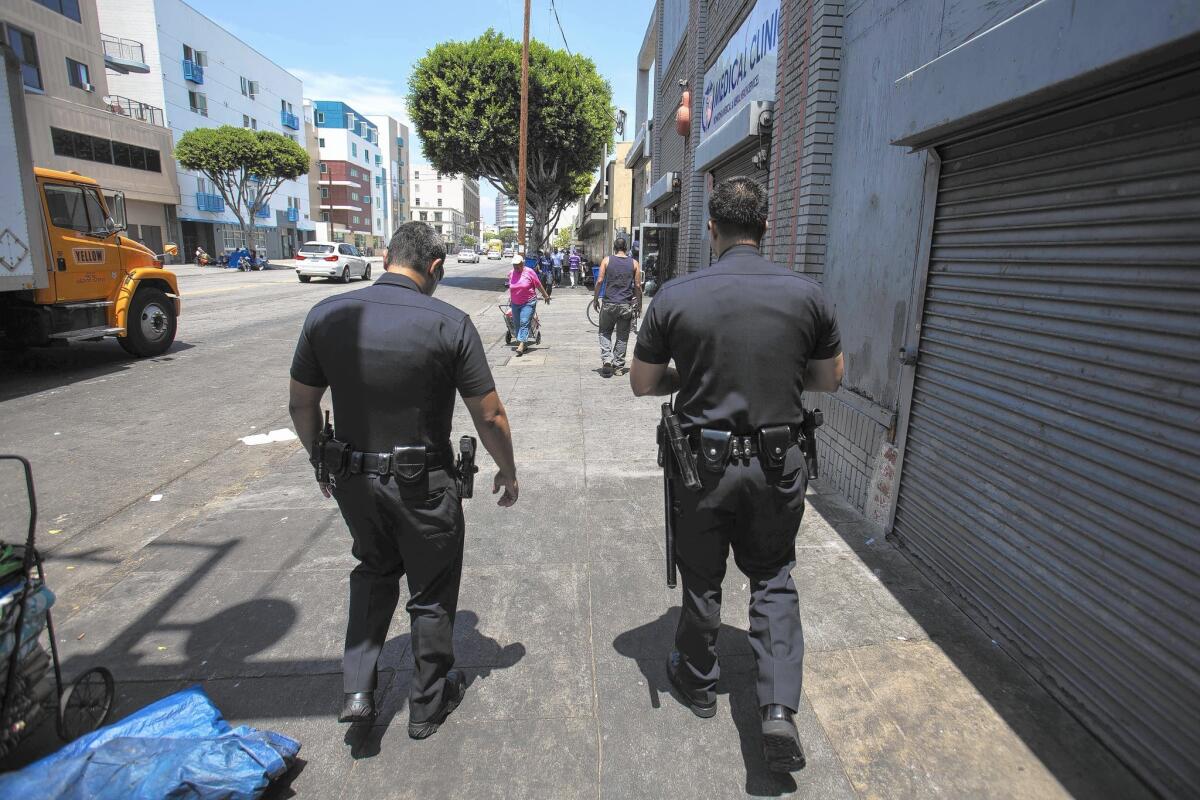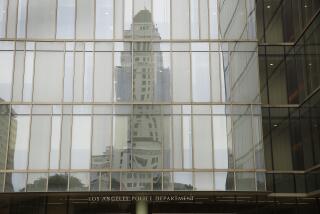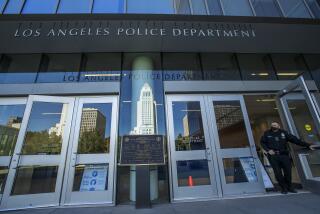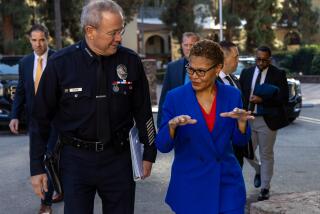LAPD officials downplay report on ‘ghost cars’

Los Angeles police officials Tuesday downplayed a recent report about falsified patrol records, saying it was an isolated problem that had been overstated and corrected.
Last week, the inspector general for the Police Commission, Alex Bustamante, released the findings of an investigation into the so-called “ghost car” scheme, in which officers were inaccurately shown in department databases and deployment logs to be on patrol.
In the report, Bustamante said his investigators had found evidence of problems with deployment records in at least five of the LAPD’s 21 divisions. Officers, the report said, were signed on to department computers and recorded as being on patrol, when in fact they were working behind a desk at a police station or handing out equipment to other officers.
Bustamante did not specify who was responsible for the deception but said it stemmed from department requirements that call on commanders in each division to have a minimum number of officers on the streets for every shift.
After Bustamante presented his findings to the commission at its weekly meeting, LAPD Assistant Chief Earl Paysinger sought to convince the oversight body that any problems with deployment records were an isolated issue and were not as serious as Bustamante had stated in his report.
Paysinger said he had ordered an internal examination of deployment records throughout the department and found no indication of “troublesome patterns” that the problem was widespread. He also tried to refute examples of what he said was inaccurate reporting included in Bustamante’s report, saying there were probably legitimate explanations why the officers were shown to be on patrol.
In a rare display of public testiness and open disagreement, Bustamante responded, telling the commission that Paysinger’s comments were inaccurate.
Paysinger’s attempts to undercut Bustamante’s report seemed to flummox commissioners, including President Steve Soboroff, who cut the assistant chief off.
Soboroff pointed out that the department had reacted quickly and aggressively when Bustamante alerted them to the problem. Paysinger himself, Soboroff said, had sent out a stern email to senior commanders, clarifying that any intentional misreporting of deployment was inappropriate. And department officials had agreed to audit deployment records from each division over the next two years.
Commissioner Robert Saltzman also raised concerns that Bustamante’s report, along with a recent Times investigation that found significant problems with the department’s crime statistics, underscored a broader problem with the department’s heavy reliance on data to judge how divisions and the captains who run them are performing.
The danger, Saltzman cautioned, is that captains and those they command will search for shortcuts, such as using ghost cars, to make division statistics seem more impressive than they actually are.
LAPD Chief Charlie Beck acknowledged this was a possibility, but emphasized that Bustamante’s report did not pinpoint any misconduct by specific people. After the meeting, Beck told reporters an internal investigation would look into whether specific captains and other members of their command staff ordered or allowed deployment records to be falsified.
More to Read
Sign up for Essential California
The most important California stories and recommendations in your inbox every morning.
You may occasionally receive promotional content from the Los Angeles Times.











